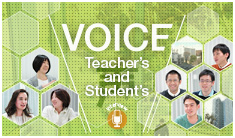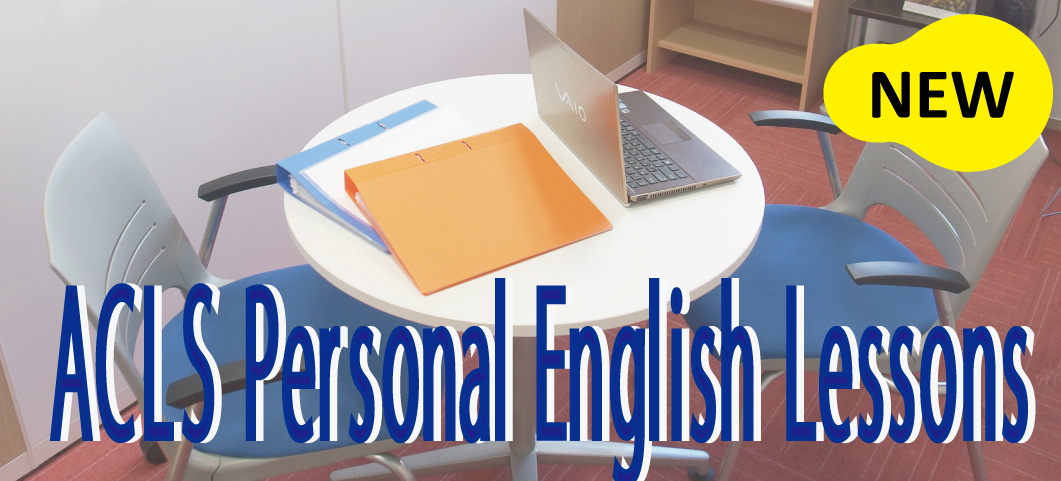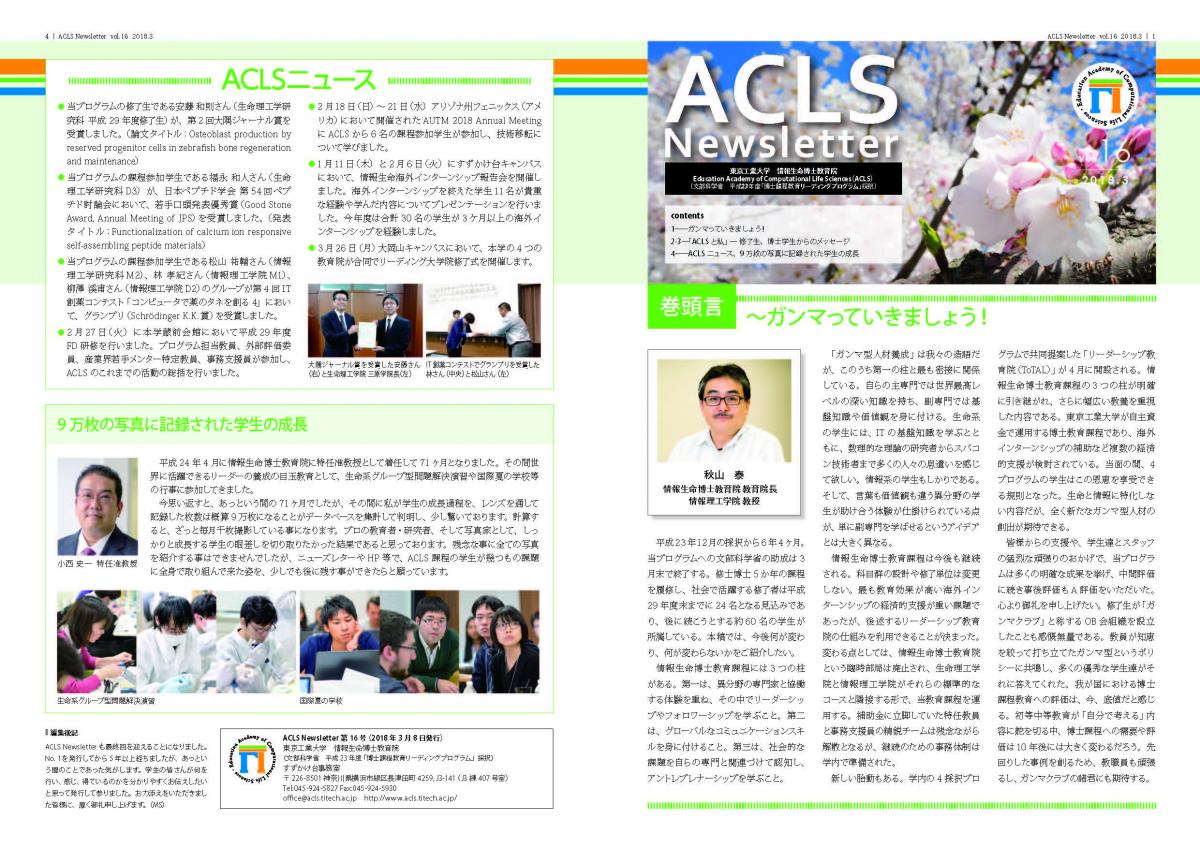- Home
- Teacher's and Student's voice
- Takeshi Inde / Tomoya Hasegawa
Takeshi Inde / Tomoya Hasegawa


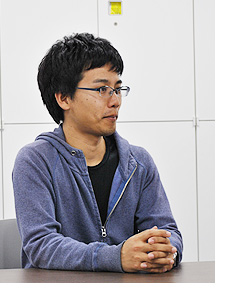 Hasegawa:Initially I had wanted to become a university professor, so I intended to enroll in a doctoral program. When considering the specifics of the ideal doctoral program, I wanted more than to simply increase my expertise. I also wanted to become a professional who is not limited to a single field, as well as a global professional who is capable of working outside of Japan. In this respect, ACLS matched my goals, and I decided to enroll in the program.
Hasegawa:Initially I had wanted to become a university professor, so I intended to enroll in a doctoral program. When considering the specifics of the ideal doctoral program, I wanted more than to simply increase my expertise. I also wanted to become a professional who is not limited to a single field, as well as a global professional who is capable of working outside of Japan. In this respect, ACLS matched my goals, and I decided to enroll in the program.
English language proficiency is essential to becoming a global professional. The group work and discussions with foreign students during the Summer School at ACLS give students the opportunity to use the English which is learned in classes taught by Berlitz instructors. I was interested in improving my English skill through such methods.
Inde:Prior to hearing about ACLS, I was undecided about enrolling in a doctoral program. Moreover, I lacked a clear goal and had only a vague desire to work as a researcher in the future. I became interested in ACLS upon learning that it offers the Summer School and other programs which feature interaction with people outside of the university. I could never have such experiences if I spent all of my time inside of a lab. Ultimately, I decided to participate in ACLS. The financial aid was also appealing.
Hasegawa:I conduct research on the tissue regeneration. For example, fish that have a fin cut off will grow a new one. Using this animal model, I am working to clarify how is possible to regenerate tissues as a result of injury. Our ultimate goal is to promote tissue regeneration in humans.
Inde:I am researching nucleic acids from a chemical standpoint. Naturally-occurring nucleic acids are not sufficiently effective as medicine when they are used without modification. My research involves making chemical modifications to nucleic acids so that they can be effectively used as medicinal drugs.

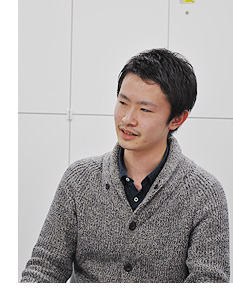 Hasegawa:As part of my research, I sometime analyzed gene expression. This involved an enormous amount of data, and I wanted to approach the analysis using methods of computer science. Although I am not able to apply computer science all by myself now, I believe that what I have learned will contribute to my future research activities.
Hasegawa:As part of my research, I sometime analyzed gene expression. This involved an enormous amount of data, and I wanted to approach the analysis using methods of computer science. Although I am not able to apply computer science all by myself now, I believe that what I have learned will contribute to my future research activities.
Also, ACLS gave me more opportunities to travel abroad. This allowed me to learn about the good points of overseas laboratories, and to assimilate such positive aspects into my own research.
Inde:In my field of research, it is necessary to communicate with experts of various research fields. For example, nucleic acids are molecules for transmitting and storing information inside of an organism. At the same time, they also provide the structures of biological material. Accordingly, my research involves experts in structural calculations and bioinformaticists which handle an enormous amount of data, as well as biologists. In order to effectively communicate with these experts, at the very least, we must possess knowledge of each other's field. Upon discussion, I have to consider the background of the other person?what they know, and what they don't know. I was able to accumulate such experience at ACLS.
Hasegawa:The number of required classes at ACLS was less than what I had imagined prior to participating in the program. I felt that the program is designed so that students can allocate sufficient time to research. I was worried by my complete lack of knowledge in fields such as computer programming however, I soon got used to computer sciences and I also received help from many people. In my case, I joined ACLS together with three other lab colleagues including some older students. Since I had friends in the program, I never felt uneasy. As classes progressed, I became able to engage in communication with students majoring in computer science. We all taught each other and found solutions.
Inde:I struggled with classes on programming language, a subject in which I had absolutely no knowledge. I felt uneasy because there was no one in my laboratory who I could ask for help with programming. All of my classmates at ACLS had programming experience. I started to fall behind and became distressed. Although I tried reading books and studying programming by myself, my efforts didn't help. Ultimately, I visited the laboratory of my programming instructor and received direct instruction from an assistant professor.

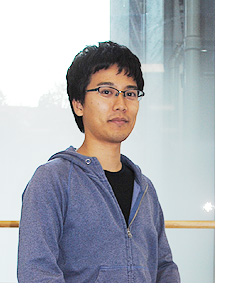 Inde:I participated the Summer School in 2013 (Imperial College London; London, England) as a member of the group work committee. Once per week, student gathered together for about an hour to exchange ideas. We discussed what kind of group work should be performed and what orientation to use. Eventually, we decided on the theme of discussing technology which is likely to be realized in ten or twenty years. I was involved in all aspects of the group work, including creating a pamphlet entitled "Future" after the Summer School. During the actual Summer School, as a member of the group work committee, I was responsible for informing other groups of deadlines and ensuring compliance. These responsibilities were in addition to my own group work, so I was extremely busy. Once "Future" had been published, I felt a great sense of joy, for my hard work had finally been rewarded.
Inde:I participated the Summer School in 2013 (Imperial College London; London, England) as a member of the group work committee. Once per week, student gathered together for about an hour to exchange ideas. We discussed what kind of group work should be performed and what orientation to use. Eventually, we decided on the theme of discussing technology which is likely to be realized in ten or twenty years. I was involved in all aspects of the group work, including creating a pamphlet entitled "Future" after the Summer School. During the actual Summer School, as a member of the group work committee, I was responsible for informing other groups of deadlines and ensuring compliance. These responsibilities were in addition to my own group work, so I was extremely busy. Once "Future" had been published, I felt a great sense of joy, for my hard work had finally been rewarded.
Hasegawa:I participated the Summer School in 2014 (Purdue University; Indiana, USA) as a member of the poster committee, which oversees the presentation of research results using posters. Our work started with reviewing abstracts which had been sent by participants. It was quite difficult to accurately sort fields with which I was not familiar. People from many different fields participated in poster session, and I felt that it has little benefit for students to listen to a poster presentation only from someone in the same field. Therefore, I arranged the times of presentations to ensure that participants could attend presentations given by students in other fields.
Inde:When conducting research, it is necessary to use English to communicate with people from other countries. My experiences at the Summer School were extremely effective training.
Hasegawa:Prior to enrolling in ACLS, I had almost no opportunity to engage in group work with foreign students. I really appreciated the experience. Although the Summer School also featured lectures, I found interaction among students to be the most enjoyable.
At the Summer School, people who have just met each other have to give a presentation together only a few days later. This was an outstanding experience in terms of improving communication skills. At the Summer School in 2012 (Shonan Village Center), Japanese students sometimes used Japanese when discussing matters amongst themselves. However, Japanese students became accustomed to using English through repeated participation in the schools, and we gradually stopped using the Japanese language.
Also, people who I had worked with in 2013 also came to the Summer School in 2014, and we were happy to see each other again. The opportunity to create such social networks is another appealing aspect of the program.

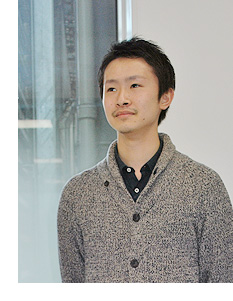 Inde:Through an introduction from Professor Mitsuo Sekine, who was my academic supervisor at the time, I conducted my internship at the University of Colorado Boulder (CU-Boulder). My instructor at CU-Boulder informed me that he was reviewing a new research theme and wanted me to come for six months to a year. Ultimately, I spent nine months at CU-Boulder, which is quite a long internship.
Inde:Through an introduction from Professor Mitsuo Sekine, who was my academic supervisor at the time, I conducted my internship at the University of Colorado Boulder (CU-Boulder). My instructor at CU-Boulder informed me that he was reviewing a new research theme and wanted me to come for six months to a year. Ultimately, I spent nine months at CU-Boulder, which is quite a long internship.
Hasegawa:I didn't receive an introduction from my supervisor and had to search by myself. Fortunately, I had just written my thesis, and I sent it via email to a laboratory in a similar field at the University of Auckland, New Zealand. I received an affirmative answer in about four days.
Inde:There were no other students in laboratory. I conducted research with my instructor and six postdoctoral researchers. Other than my instructor, all members of the laboratory were from outside of America, coming from countries such as India, China, Italy, and Poland. Even so, when conducting research together, I felt absolutely no obstacles in terms of individual research style or methods of pursuing goals. I realized that research methods are the same even if nationalities are different.
However, most of the postdoctoral researchers in the lab were married and had a family. Some of the university students who used the laboratory had children. I felt culture shock in this respect, but I learned from their working style of coming to the laboratory early in the morning, finishing experiments within the allotted time, and returning home in the early evening.
On the other hand, I recognized that the spirit of mutual consideration at Japanese laboratories in terms of using experiment space and equipment is a wonderful part of Japanese research culture.
Hasegawa:I was also surprised by time management at my internship laboratory. Research hours were set from 8:00 am to 6:00 pm, and I found it difficult to prepare for experiments in a short amount of time. What I learned the most was how to think about my setup at home and use my time in the laboratory as effectively as possible. By using my research time effectively, I had more free time and was able to read research papers in fields which I normally wasn't exposed to.
Here, it is common for individual laboratories to assume sole responsibility for completing a certain experiment. However, at the University of Auckland, there were about five laboratories on a single floor. It was a flexible environment which skillfully took advantage of horizontal relationships, with researchers sharing knowledge and reagents. In New Zealand, we discussed research and other academic topics during meals. Occasionally, I would get a good idea during such discussions, and this is something that I would like to continue in the future.

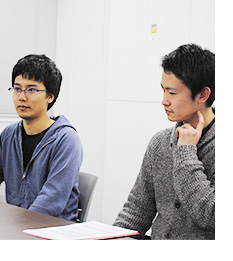 Hasegawa:For me, the most enjoyable aspect of research was not conducting experiments myself; rather, it was forecasting and considering experiment results. Then I started to think that there are more options in my future career path. An older graduate student at my laboratory entered employment at a consulting company, and I wanted to do the same. However, I realized that trading companies fulfill an advisory role while conducting business, which is in between the professions of consulting and research. I then set my sights on employment at a trading company and got the job. During my interviews, I was frequently asked about my overseas experiences. I feel that my discussion of the ACLS Summer School and internship was positively received.
Hasegawa:For me, the most enjoyable aspect of research was not conducting experiments myself; rather, it was forecasting and considering experiment results. Then I started to think that there are more options in my future career path. An older graduate student at my laboratory entered employment at a consulting company, and I wanted to do the same. However, I realized that trading companies fulfill an advisory role while conducting business, which is in between the professions of consulting and research. I then set my sights on employment at a trading company and got the job. During my interviews, I was frequently asked about my overseas experiences. I feel that my discussion of the ACLS Summer School and internship was positively received.
Inde:The more I learn about research, the more I realize the depth of the field. Research is interesting and limitless, and I will never grow tired of my work. The nucleic acids which I currently research are appealing substances with the potential to be used in various ways, so I want to continue my research a bit longer. I have yet to decide upon my career after graduation. When I entered a laboratory during my senior year of university, I first experienced the thrill of creating new things and sending them into the world. As long as this excitement is part of my work, I would be happy working in academia or at a corporation. Although it is difficult to foresee how my current research will be connected to the research which I conduct after finding employment, I want to continue to savor the thrill of research.
Hasegawa:I see no demerit in the ACLS program. The curriculum is designed so that classes benefit each individual student. There is no reason not to participate in the program.
Each student interested in ACLS will have a different expectation in the doctoral program. However, ACLS is appropriate for all students, and I urge prospective students to participate without hesitation. One nice aspect of the program is that you will make friends with classmates, younger students, and older students outside of your laboratory.
I also enjoyed learning about the other students research. My friends at ACLS broke things down and gave simple explanations which enabled me to understand difficult subjects which I never could have comprehended if I had started by reading a research paper. Another great experience was how I had to explain the appeal of my research to researchers from other fields at the poster session. Since researchers receive financial support for conducting research, I feel that we must ensure that the significance of our research can be understood by people without any technical knowledge. Of course, this is in addition to ensuring understanding from researchers in other fields. The ACLS program gave me opportunities to improve the ability to explain my research, which was very beneficial.
Inde:At first, I was worried that the ACLS program would take too much time and that my experiments would suffer. However, upon participating in the program, I realized that I could handle everything by managing my time. Although students who are currently thinking about participating in ACLS may not be able to receive the long-term financial support as we did, the program is filled with classes and opportunities unlike anything that you have experienced. I urge prospective students to grab the opportunity which is being presented. Many students may not recognize the importance of learning about fields outside of their major. However, thanks to ACLS, I overcame such preconceptions and benefited greatly from studying new fields. It was an invaluable experience.
※The content of this article is accurate at the time of the interview, December 2015.






